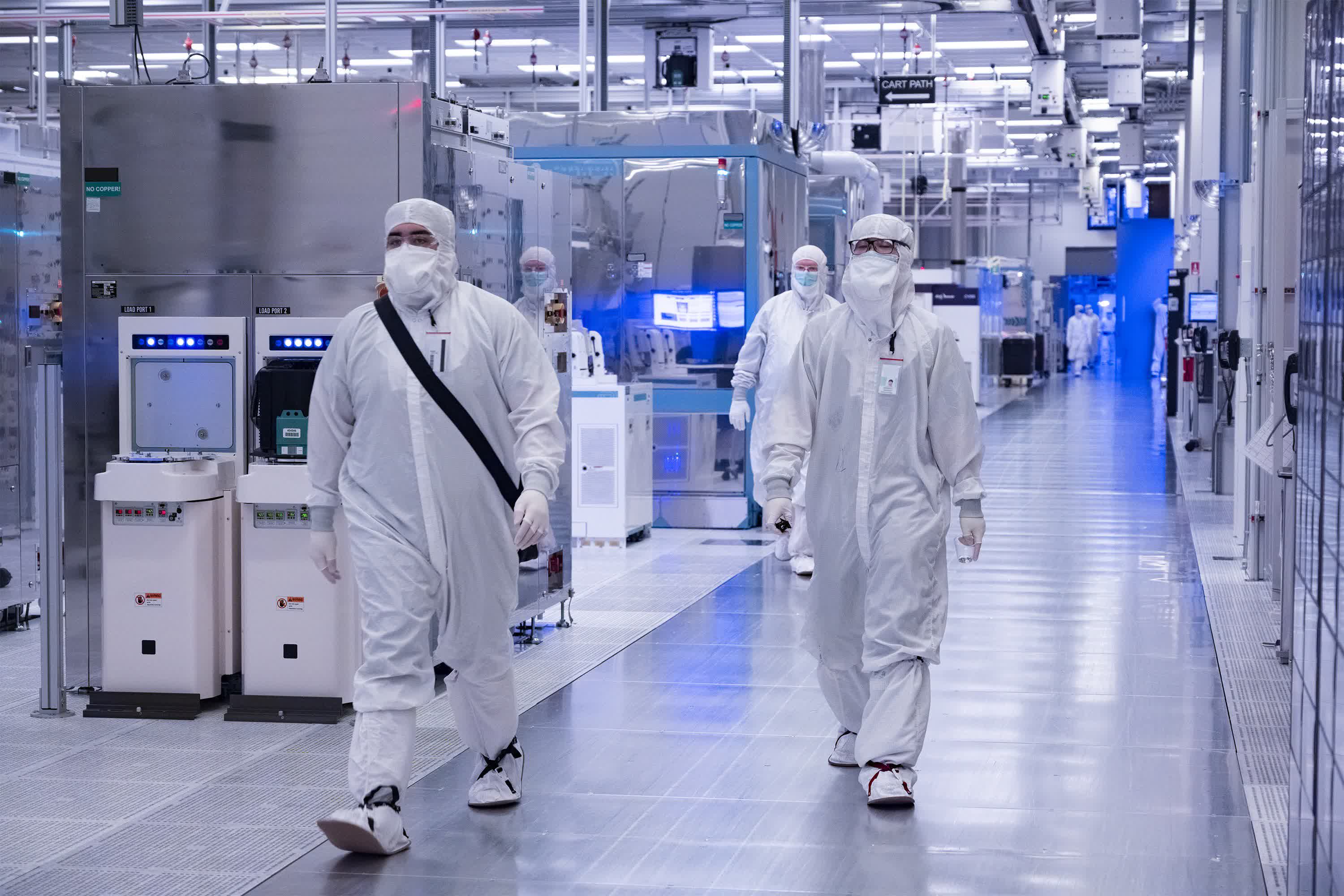We've seen this movie before: It's been a while since we've heard the phrase, "Too big to fail." While the US government has learned to avoid that language because of its negative connotations, that is not stopping it from considering running the same end-game play from 2008 – using taxpayer-funded subsidies to keep a large corporation afloat. This time around, it's Intel.

Amid growing concerns over Intel's recent financial struggles, top US policymakers are discreetly weighing contingency plans to support the company, which remains central to America's technological ambitions. The troubled company is trying to cash in on the recently passed CHIPS Act, but Intel leadership fears the process is taking too long. Semafor notes that the largest US-based chip manufacturer is expected to receive billions in government aid through the Act. Yet, discussions have begun on whether further intervention might be necessary.
Last week brought some good news for investors as Intel turned in a better-than-expected quarterly outlook. However, federal officials and members of Congress, including Senator Mark Warner, a prominent advocate of the CHIPS Act, are reportedly exploring options should Intel's financial stability continue to falter. The company's recent cost-cutting measures, which included a dividend suspension and plans to cut 16,500 jobs, signal deeper issues. To make matters worse, credit agencies have downgraded Intel, raising its borrowing costs and generating concerns in Washington.
"We've seen this movie before. Years ago, a struggling AMD split off its manufacturing capacity into Global Foundries."
– Former Intel CEO Craig Barrett
"We have outlined a clear strategy that we are executing with rigor, and the strong operational performance we delivered in Q3 demonstrates important progress against our plan," an Intel spokesperson said. "Intel is the only American company that designs and manufactures leading-edge chips and is playing a critical role to enable a globally competitive semiconductor ecosystem in the US."
Intel's role as a potential "national champion" in the semiconductor space has taken on heightened significance. Unlike companies like Nvidia, which rely on third-party manufacturers in Asia, Intel has always produced chips in its US-based fabrication facilities. In light of China's influence over Taiwan, where TSMC produces many of the world's cutting-edge chips, silicon supply chains have become a strategic priority for economic and national security reasons.
One potential remedy floated by policymakers is encouraging a merger of Intel's design division with rivals like AMD, Samsung, Marvell, or Qualcomm. Intel was recently mulling over this option. However, some fear this approach could mirror past failures, such as AMD's spinoff of its manufacturing arm into GlobalFoundries. Former Intel CEO Craig Barrett recently voiced skepticism over a breakup, warning it could undermine Intel's R&D capabilities.

"We've seen this movie before. Years ago, a struggling AMD split off its manufacturing capacity into Global Foundries," Barrett recalls. "Pundits applauded the split at the time. A decade later, AMD is doing well using TSMC, while Global Foundries has little, if any, differentiated technology. Global Foundries just didn't have enough research and development budget, and with limited production and revenue, struggled to keep up with market leaders."
While Intel has resisted some efforts at a merger, it might not have a choice as lawmakers wish to avoid another government (read: taxpayer) bailout like the ones in the auto industry in 2008. Leadership would rather see Intel bail itself out and are sure to apply pressure in that direction. However, Congress has not entirely taken a government subsidy plan off the table.
Intel CEO Pat Gelsinger said that despite a $16.6 billion net loss due to restructuring expenses, including layoffs, the company still expects to debut its new 18A chip next year – a launch seen as crucial to closing the gap with TSMC. Whether additional government support or further corporate restructuring will follow Washington's response may ultimately test its ability to balance innovation, national security, and free-market principles.
Is Intel too big to fail? US officials are considering government intervention
